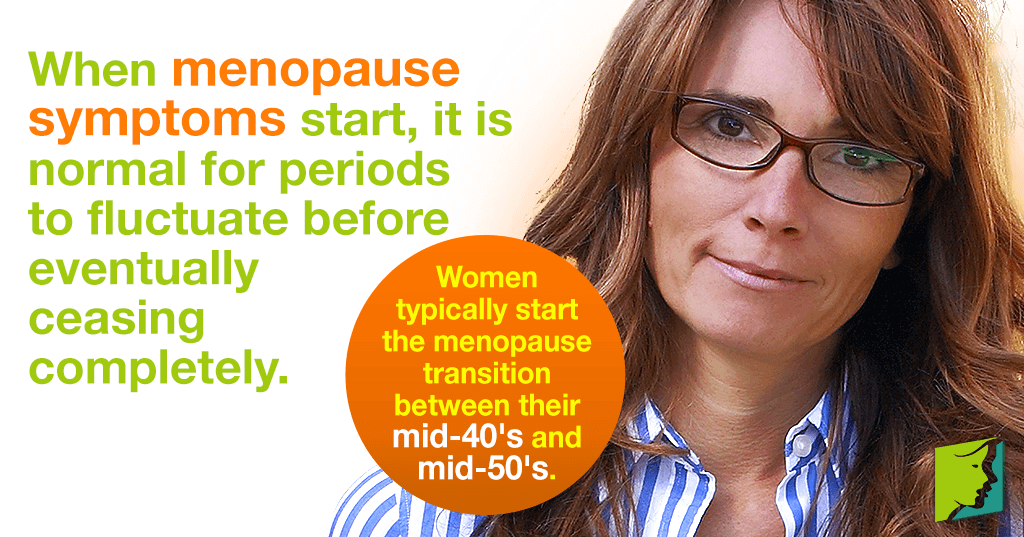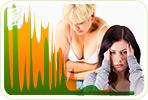Menopause is the name given to the end of a woman's periods and fertility; it is sometimes called the “change of life”, and medically speaking, happens when the ovaries stop releasing eggs every month, and a period has not occurred for a full year. The menopause transition can last for many years, and in the years after symptoms first start, it is a regular occurrence for periods to fluctuate before eventually ceasing completely.
When Will it Start?
Just as women start their periods at different ages, the same is true of the menopause. The rough guideline is that women can start the menopause transition any time between the ages of 40 and 60 years old.
What Are the Symptoms?
There are a variety of symptoms that range in terms of severity and discomfort. General and expected symptoms include hot flashes and night sweats, mild skin problems, vaginal dryness, diminished sex drive, and mood swings. There are risks of more serious complications if certain precautionary measures are not taken in the years preceding menopause. Osteoporosis is when bones become brittle and frail, making them easily broken, and a poor diet combined with low estrogen levels of menopause can exacerbate the condition.
How Is it Treated?
There are several treatment options available for women going through menopause depending on individual circumstances.
Lifestyle adjustments
Many women manage their symptoms on their own without medical help through certain lifestyle changes. These tend to include adopting a healthy, balanced diet and sometimes avoiding spicy or hot foods if they are suffering from hot flashes. Wearing lightweight cotton clothing and staying hydrated by consuming the equivalent of two liters of water per day are also two key changes many women have reported as helpful.
Medications
In terms of medical solutions, the main option is called hormone replacement therapy (HRT) and involves taking either estrogen or a combination of estrogen and progesterone in order to regulate the hormonal imbalance that menopause creates. Both forms of HRT are available in a variety of methods, such as a tablet, a patch, topical cream, or as an implant. It is necessary to see a doctor in order to be properly diagnosed and then prescribed HRT.
Alternative medicine
There are also natural, alternative remedies that are sometimes used by women instead of HRT. While these are milder in terms of their impact on the body, many women prefer this option to taking such a high dose of synthetic hormones. The most common options include herbal supplements that stimulate the body's natural hormone production, such as Macafem. There are also those that work in a similar way to HRT by adding estrogen to the body, for instance, black cohosh. Other popular choice is the ginkgo, which has long been associated with women's health and used traditionally as a means of aiding menopausal symptoms.
For menopausal problems that are causing extreme discomfort or interfering with daily life, it is best to visit a medical practitioner to discuss your options. Read more about the menopause treatments available.
Sources
- Lee, J.R. (1996). What Your Doctor May Not Tell You About Menopause. New York. Warner Books.
- National Health Service UK. (2014). Menopause. Retrieved January 27, 2015, from http://www.nhs.uk/conditions/menopause/Pages/Introduction.aspx




